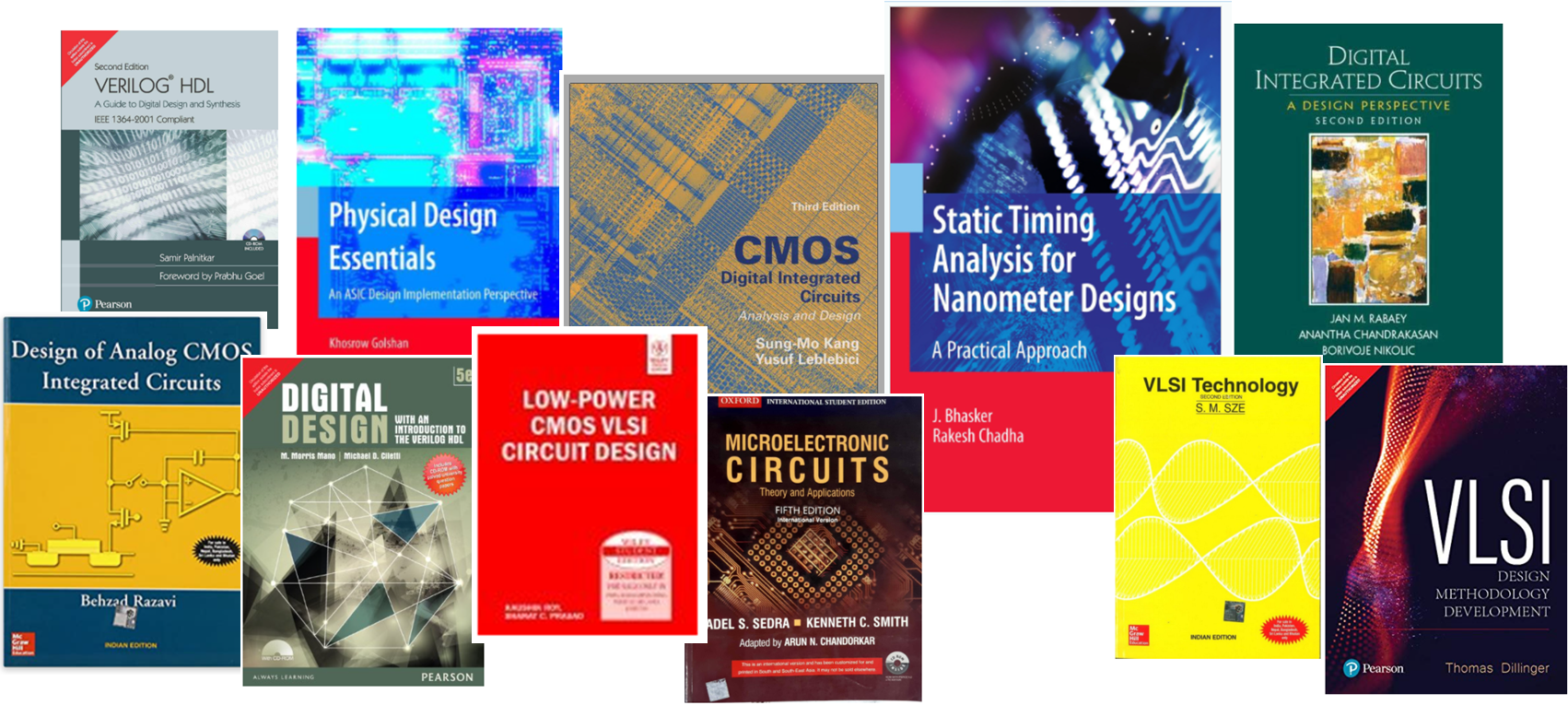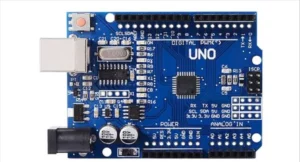Introduction:
Embarking on a journey in Very Large-Scale Integration (VLSI) design, particularly in Complementary Metal-Oxide-Semiconductor (CMOS) technology, is akin to building a intricate Lego structure. Just as each Lego piece contributes to the final masterpiece, understanding the foundational concepts in CMOS technology lays the groundwork for creating complex integrated circuits. In this blog post, we’ll explore the Top 5 VLSI Books tailored for beginners, serving as the building blocks for your journey into the fascinating world of CMOS design.
Follow us on LinkedIn for everything around Semiconductors & AI
1. “CMOS VLSI Design: A Circuits and Systems Perspective” by Neil H.E. Weste and David Money Harris
“CMOS VLSI Design: A Circuits and Systems Perspective” by Neil H.E. Weste and David Money Harris is a highly regarded textbook in the field of Very-Large-Scale Integration (VLSI) design, with a particular focus on Complementary Metal-Oxide-Semiconductor (CMOS) technology. Here’s a breakdown of the book’s strengths:
.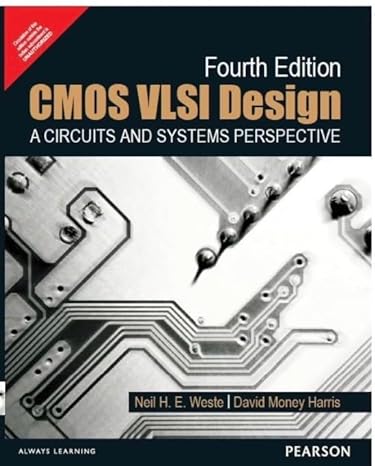
Comprehensive Coverage: The book offers in-depth coverage of the entire VLSI design process, from fundamental concepts like transistors and circuits to advanced topics like design challenges at the 65nm process node.
Circuit-Level Focus: The book provides a strong foundation in circuit-level design, which is essential for understanding how VLSI chips function.
Rich Examples and Problems: The book includes a vast collection of problems and worked examples that solidify the reader’s understanding of the concepts.
Suitable for Beginners and Experts: The book is written in a clear and accessible manner, making it suitable for beginners in the field. At the same time, it offers enough depth to challenge more experienced readers.
Buy now: https://amzn.to/4btKKDP
2. “Introduction to VLSI Circuits and Systems” by John P. Uyemura
This textbook offers a comprehensive introduction to VLSI design, with a focus on CMOS technology. It covers topics such as semiconductor physics, transistor-level design, and layout considerations.
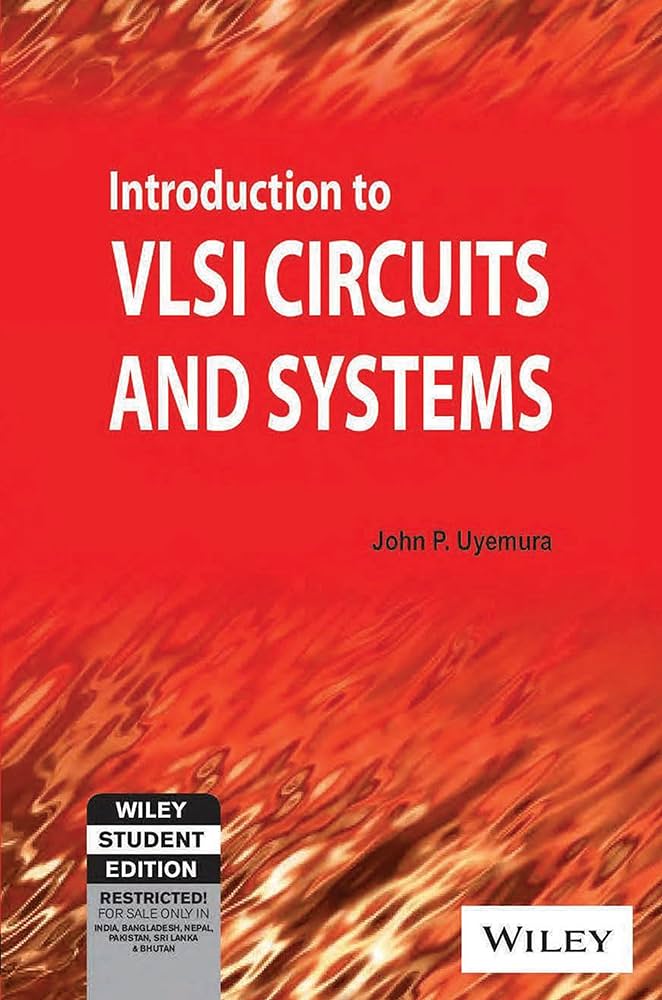
The book’s extensive coverage and practical approach make it suitable for beginners seeking a solid understanding of CMOS VLSI design principles. Additionally, it includes numerous exercises and design projects to reinforce learning.
Buy Now: https://amzn.to/44tbz8Q
3. “Digital Integrated Circuits: A Design Perspective” by Jan M. Rabaey, Anantha Chandrakasan, and Borivoje Nikolic
“Digital Integrated Circuits: A Design Perspective” by Jan M. Rabaey, Anantha Chandrakasan, and Borivoje Nikolic is a well-regarded textbook in the field of digital integrated circuit design. Here’s a summary of its strengths:
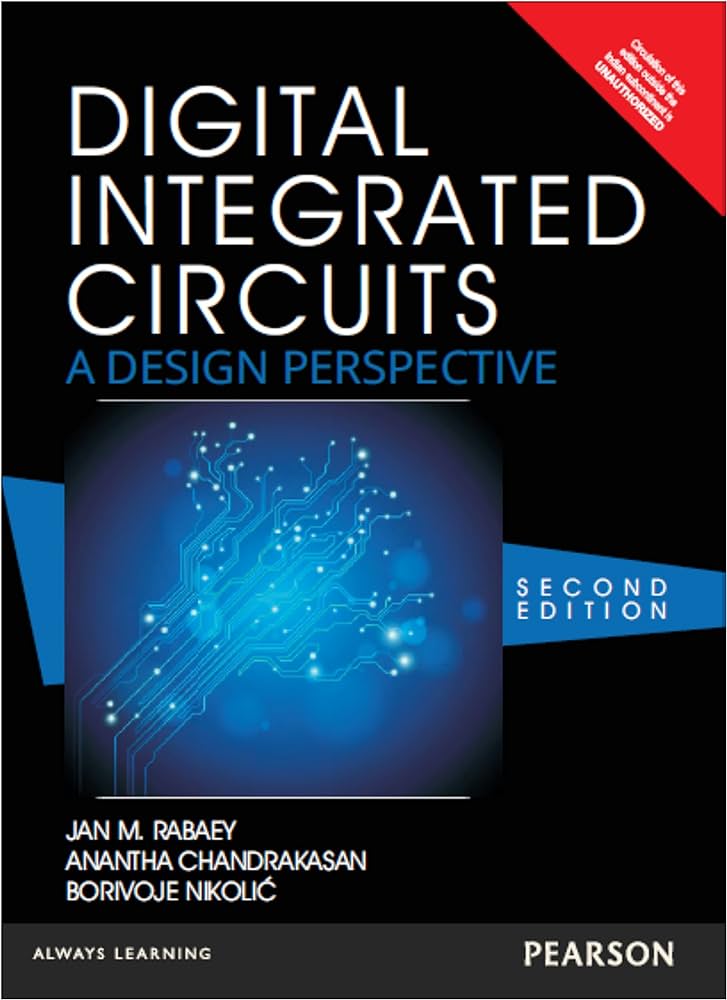
Design-oriented approach: The book focuses on the practical aspects of designing digital integrated circuits, rather than just theoretical foundations.
Comprehensive coverage: It covers a wide range of topics, from the fundamentals of CMOS devices and fabrication processes to advanced design techniques and performance optimization.
Quality metrics: It emphasizes important considerations for designers such as cost, functionality, performance, and power consumption.
Up-to-date: The second edition (2003) considers advancements in process technology at the time.
While reviews are generally positive, it is a hefty textbook (over 700 pages) and may require a strong foundation in electrical engineering concepts.
Buy Now: https://amzn.to/4dmj7hL
4. “CMOS Circuit Design, Layout, and Simulation” by R. Jacob Baker
This comprehensive textbook covers the entire CMOS design process, from transistor-level circuit design to layout and simulation.
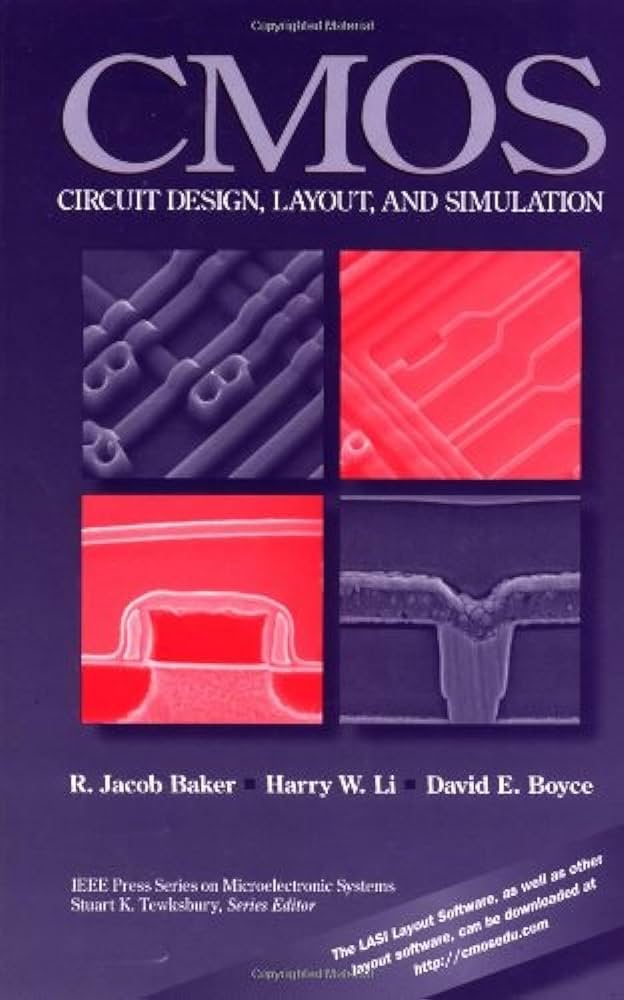
It provides detailed explanations of CMOS device physics, design methodologies, and layout techniques.
With its emphasis on practical design considerations and simulation tools, it offers a comprehensive foundation for beginners in CMOS VLSI design.
Furthermore, it includes advanced topics such as clocking strategies and interconnect optimization.
Buy now: https://amzn.to/3WzzNMR
5. “CMOS Digital Integrated Circuits: Analysis and Design” by Sung-Mo Kang and Yusuf Leblebici
This book offers a thorough introduction to CMOS digital integrated circuit design principles. It covers topics such as MOSFET operation, logic gates, and circuit optimization.
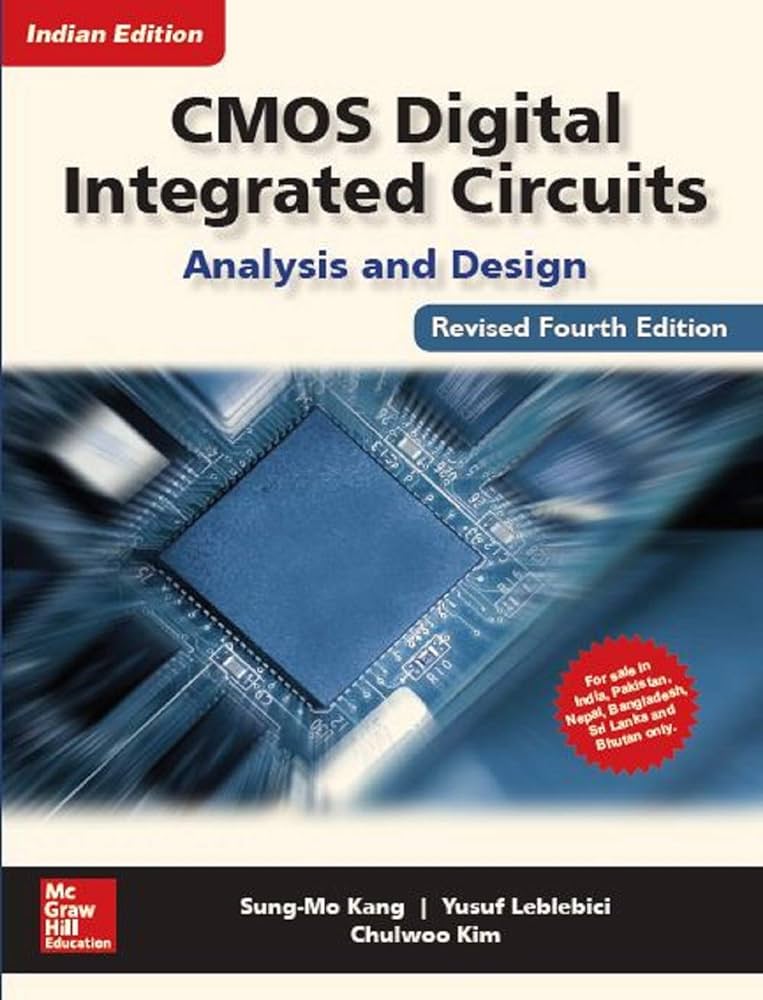
Comprehensive coverage: The book starts with CMOS fundamentals and progresses to advanced topics like memory circuits, BiCMOS circuits, and low-power design.
Rigorous treatment: It provides in-depth explanations of concepts with detailed examples.
Up-to-date: The third edition (2002) incorporates advancements in technology and design practices.
Suitable for a broad audience: It caters to senior undergraduate students, graduate students, and practicing engineers.
Buy Now: https://amzn.to/3JKU8Hn
Conclusion:
Embarking on a journey in CMOS VLSI design can be both exciting and challenging. With the right educational resources at your disposal, such as the top five VLSI books highlighted in this blog post, beginners can acquire the knowledge and skills needed to excel in this dynamic field. Whether you’re interested in transistor-level circuit design, layout considerations, or digital integrated circuit design, these books offer a solid foundation to kickstart your learning journey in CMOS technology.

